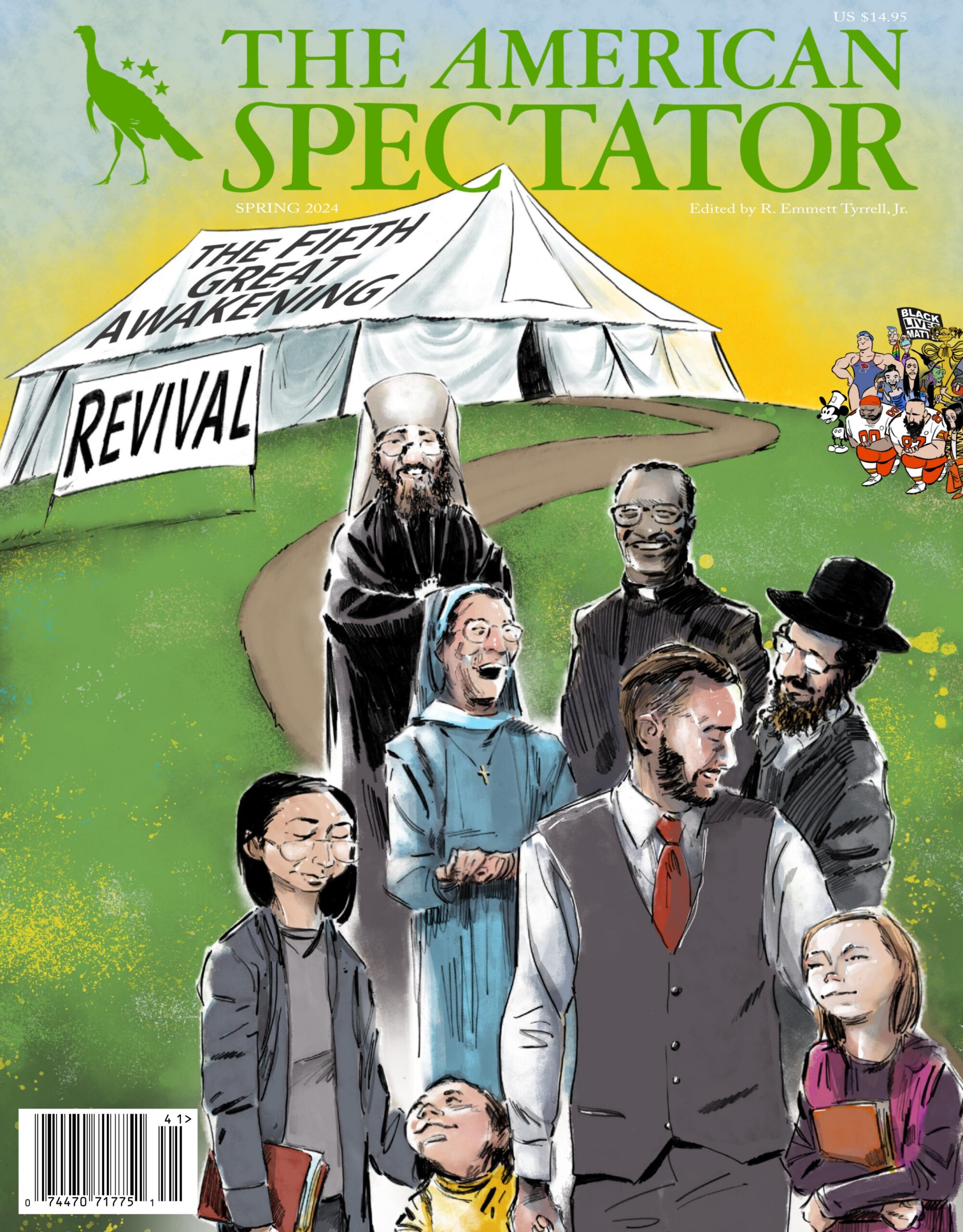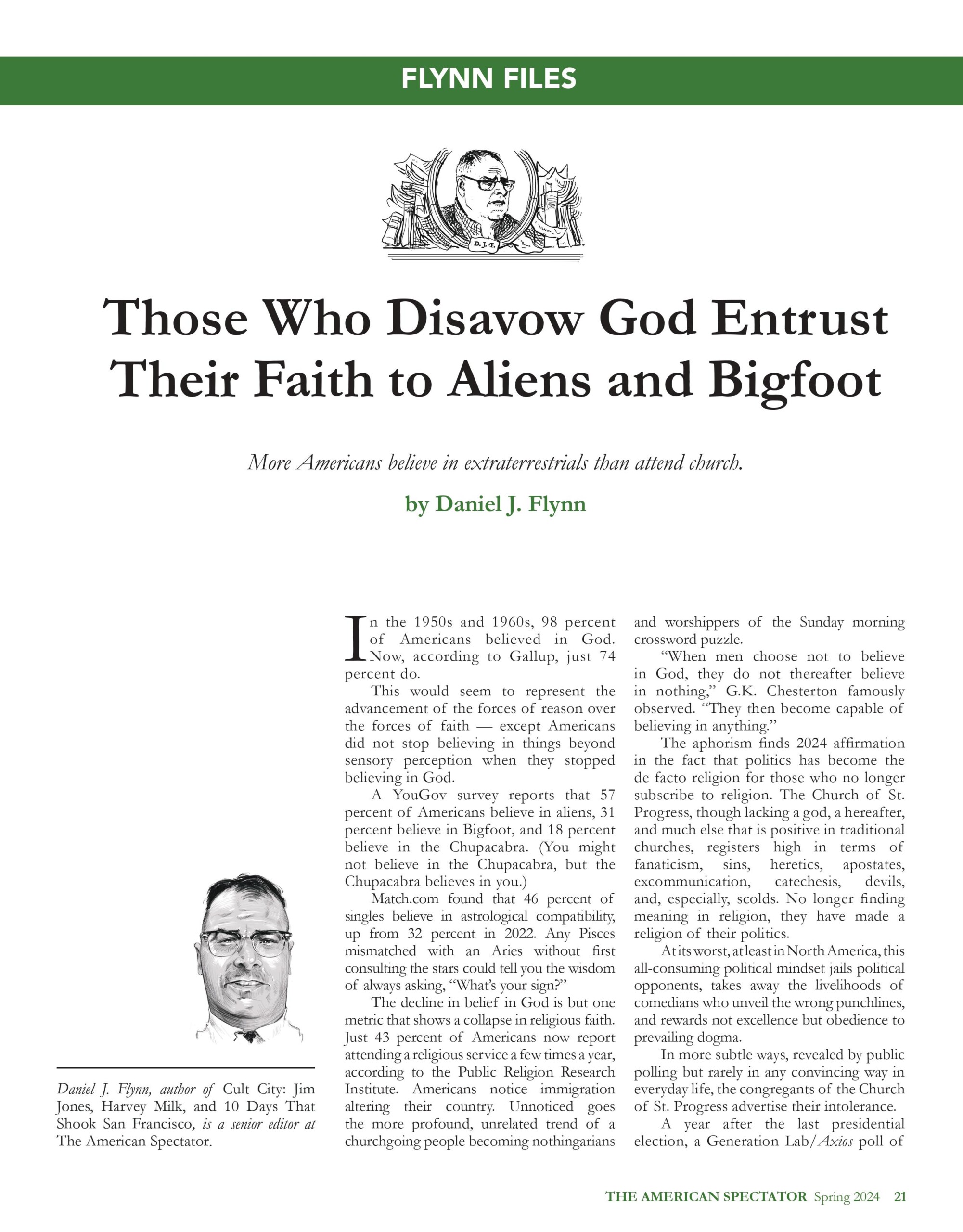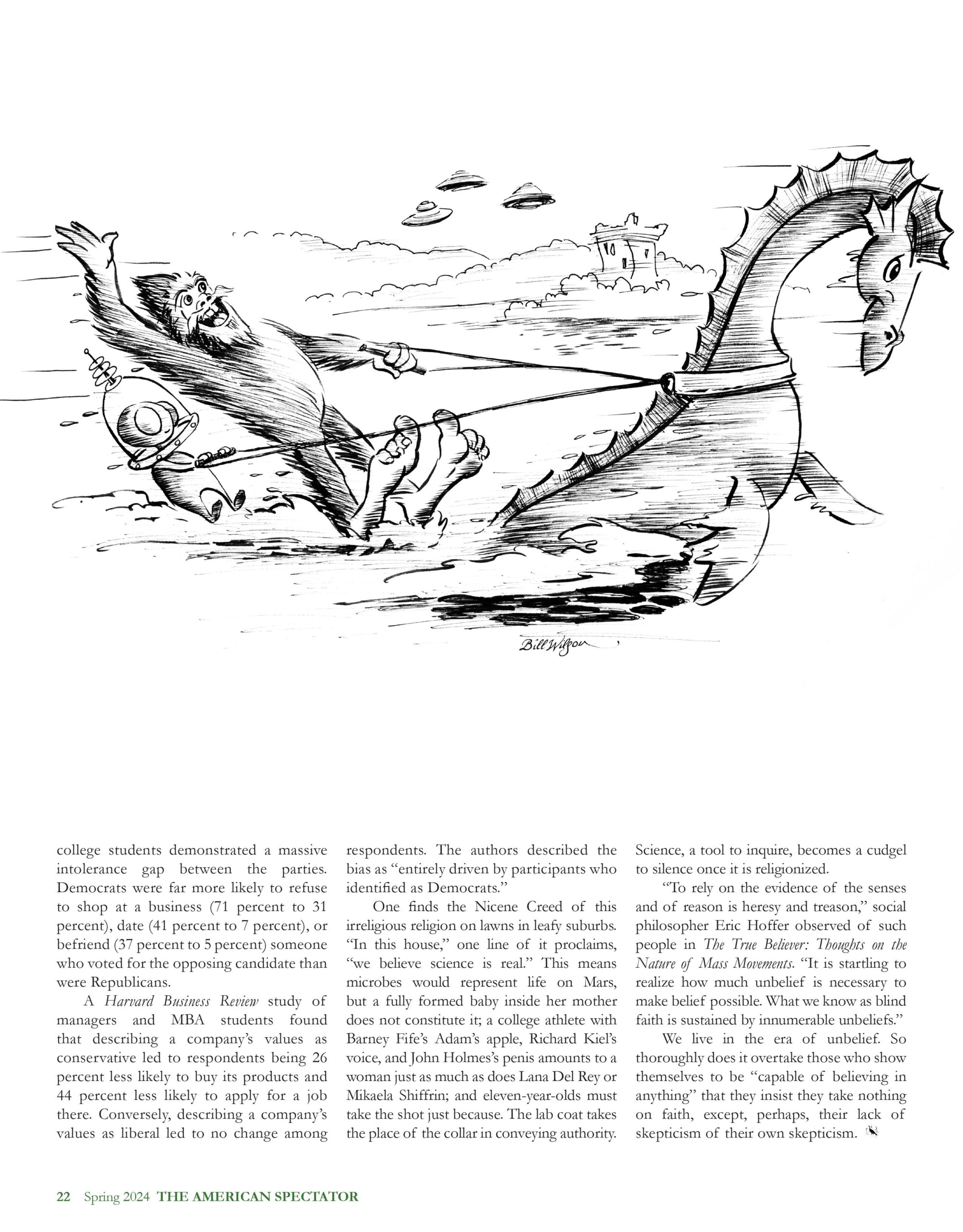In the 1950s and 1960s, 98 percent of Americans believed in God. Now, according to Gallup, just 74 percent do.
This would seem to represent the advancement of the forces of reason over the forces of faith — except Americans did not stop believing in things beyond sensory perception when they stopped believing in God.

This article is taken from The American Spectator’s latest print magazine. Subscribe to receive the entire magazine.
A YouGov survey reports that 57 percent of Americans believe in aliens, 31 percent believe in Bigfoot, and 18 percent believe in the Chupacabra. (You might not believe in the Chupacabra, but the Chupacabra believes in you.)
Subscribe to The American Spectator to receive our latest print magazine, which includes this article and others like it.
Match.com found that 46 percent of singles believe in astrological compatibility, up from 32 percent in 2022. Any Pisces mismatched with an Aries without first consulting the stars could tell you the wisdom of always asking, “What’s your sign?”
The decline in belief in God is but one metric that shows a collapse in religious faith. Just 43 percent of Americans now report attending a religious service a few times a year, according to the Public Religion Research Institute. Americans notice immigration altering their country. Unnoticed goes the more profound, unrelated trend of a churchgoing people becoming nothingarians and worshippers of the Sunday morning crossword puzzle.
“When men choose not to believe in God, they do not thereafter believe in nothing,” G.K. Chesterton famously observed. “They then become capable of believing in anything.”
The aphorism finds 2024 affirmation in the fact that politics has become the de facto religion for those who no longer subscribe to religion. The Church of St. Progress, though lacking a god, a hereafter, and much else that is positive in traditional churches, registers high in terms of fanaticism, sins, heretics, apostates, excommunication, catechesis, devils, and, especially, scolds. No longer finding meaning in religion, they have made a religion of their politics.
 |
 |
At its worst, at least in North America, this all-consuming political mindset jails political opponents, takes away the livelihoods of comedians who unveil the wrong punchlines, and rewards not excellence but obedience to prevailing dogma.
In more subtle ways, revealed by public polling but rarely in any convincing way in everyday life, the congregants of the Church of St. Progress advertise their intolerance.
A year after the last presidential election, a Generation Lab/Axios poll of college students demonstrated a massive intolerance gap between the parties. Democrats were far more likely to refuse to shop at a business (71 percent to 31 percent), date (41 percent to 7 percent), or befriend (37 percent to 5 percent) someone who voted for the opposing candidate than were Republicans.
A Harvard Business Review study of managers and MBA students found that describing a company’s values as conservative led to respondents being 26 percent less likely to buy its products and 44 percent less likely to apply for a job there. Conversely, describing a company’s values as liberal led to no change among respondents. The authors described the bias as “entirely driven by participants who identified as Democrats.”

Art by Bill Wilson
One finds the Nicene Creed of this irreligious religion on lawns in leafy suburbs. “In this house,” one line of it proclaims, “we believe science is real.” This means microbes would represent life on Mars, but a fully formed baby inside her mother does not constitute it; a college athlete with Barney Fife’s Adam’s apple, Richard Kiel’s voice, and John Holmes’s penis amounts to a woman just as much as does Lana Del Rey or Mikaela Shiffrin; and eleven-year-olds must take the shot just because. The lab coat takes the place of the collar in conveying authority. Science, a tool to inquire, becomes a cudgel to silence once it is religionized.
“To rely on the evidence of the senses and of reason is heresy and treason,” social philosopher Eric Hoffer observed of such people in The True Believer: Thoughts on the Nature of Mass Movements. “It is startling to realize how much unbelief is necessary to make belief possible. What we know as blind faith is sustained by innumerable unbeliefs.”
We live in the era of unbelief. So thoroughly does it overtake those who show themselves to be “capable of believing in anything” that they insist they take nothing on faith, except, perhaps, their lack of skepticism of their own skepticism.
Subscribe to The American Spectator to receive our latest print magazine on the future of religion in America.
